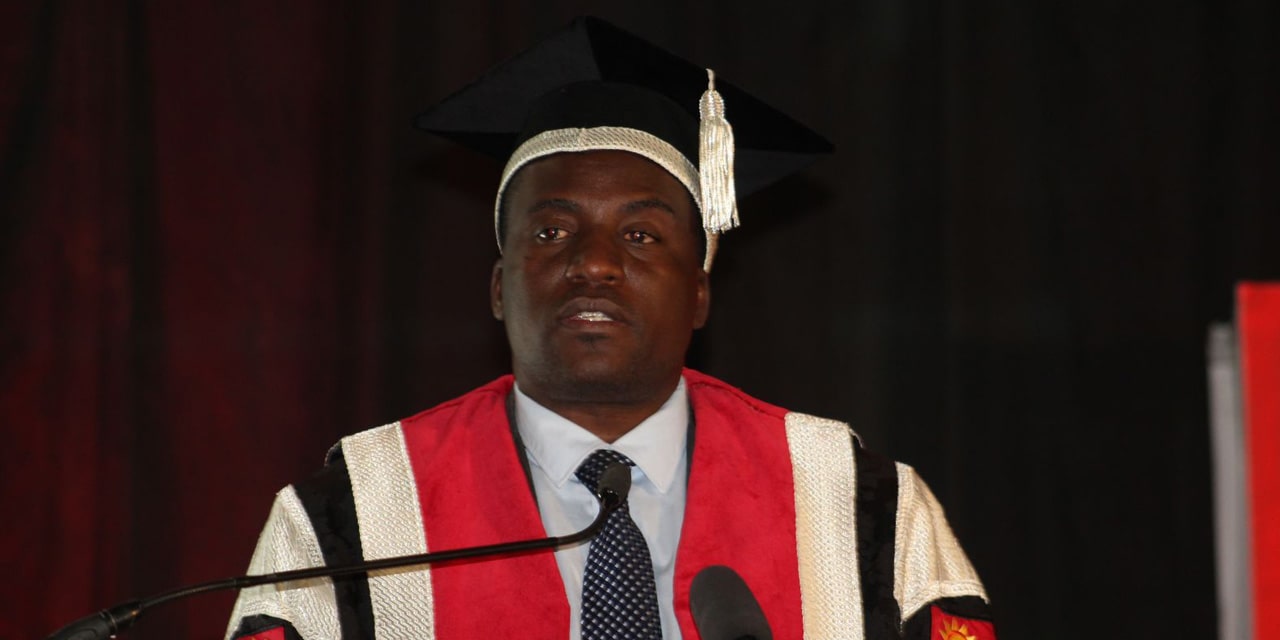Maria Hamutenya
University admission prospects for grade 11 students who applied to the University of Namibia (Unam) were finally crushed on Thursday. Unam Vice Chancellor, Professor Kenneth Matengu, questioned the quality of curriculum and their ability to handle tertiary education.
“The curriculum is not deep enough for students to be ready for admission into university. The understanding was and still is that the basic education curriculum would be revised and improved to the level of advanced subsidiary to allow those who wish to pursue university education to progress from grade 11 level 3 to National Senior Secondary Certificate Advanced Subsidiary (NSSCAS) level 4, which then becomes a pre requisite for entering university,” he said on Thursday.
“I can give you if necessary our experiences in terms of what happens to children when they come here and they are not ready. It’s very traumatic and we don’t want that to continue. We have to take care of our children and make sure that when they come to the university, they are ready to enjoy and thrive in that university life rather than to struggle.”
Unam Pro Vice Chancellor (Academic Affairs), Frednard Gideon, added that the purpose or reason why curriculum reform are required, is because the university would like to have graduates with unique skills, competencies and abilities to be able to perform in the world of work.
“This children must be matured and independent as well. Unam embarked on the curriculum transformations to then include some of these aspects mentioned so that we produce that graduate that is much grounded and would be able to compete the way we want them to,” he said.
Unam’s Acting Registrar, Dr. Hilkka Ndjaula, speaking on the admission criteria, urged the current grade 11s who are the new National Senior Secondary Ordinary (NSSCO), to proceed to NSSCAS level and after that to have the subjects that will make the combination that is required for admission into the university.
“The levels are telling us the capability developed in a learner, and they are reflecting the integration and skills of that learner. It also tells us how that learner can transfer the knowledge learned, for us to continue taking in learners at level 3 while there is an opportunity to have them at level 4 may be a bit challenging,” said Unam registrar said.
“Students will now be required to have 27 points, which will be a combination of two subjects in advanced subsidiary (AS), and three subjects in NSSCO with at least C or higher, and a C symbol or higher in English. Those will be the combinations required for students to make up 27 points.”
Ndjaula said the university’s position did not contradict the stance of the Ministry of Basic Education, “as is in line with what cabinet had approved that learners who choose to pursue tertiary education should progress to AS. We cannot compete with basic education for that top cream, if we compete with basic education for that cream that wants to progress to AS, we will take them and there will be no candidates for AS. We have to embrace the reform and ensure that it succeeds. For us access with success is key, access that does not enable you to succeed is not access, it becomes costly and it’s a very fundamental point that we take into account as a university.”
“Unam is prepared to appreciate students from the NSSCAS because they will bring the benefits that are required by the university.”
Despite the public uproar over Unam’s decision, Minister of Higher Education, Technology and Innovation, Dr Itah Kandjii-Murangi, has left the door open for universities to decide whether to accept or not those with grade 11.
“I wish to encourage all learners who have excelled in their new NSSC Ordinary level examination to proceed to NSSCAS as a priority choice, and invite those willing to pursue tertiary education to properly research and inform themselves with requirements of different institutions and programmes of their choice,” she said.
“Thus, as it has always been the case, some programmes will allow admission with NSSC Ordinary level qualification, whereas others dictate that the learners should have attained higher level or AS level qualification, the highest exit level in senior secondary education. The implemented changes in the school curriculum mean that, there now exist two exit levels to tertiary education institutions, namely the National Senior Secondary Ordinary (NSSCO) level, which until this year was only achievable after twelve years of formal basic education, and the new Advanced Subsidiary (AS) level.”
The Namibia Students Financial Assistance Fund (NSFAF), however, said any learner that has 25 points or more in 5 subjects and is accepted by an institution that is accredited, is eligible to be funded by NSFAF.




